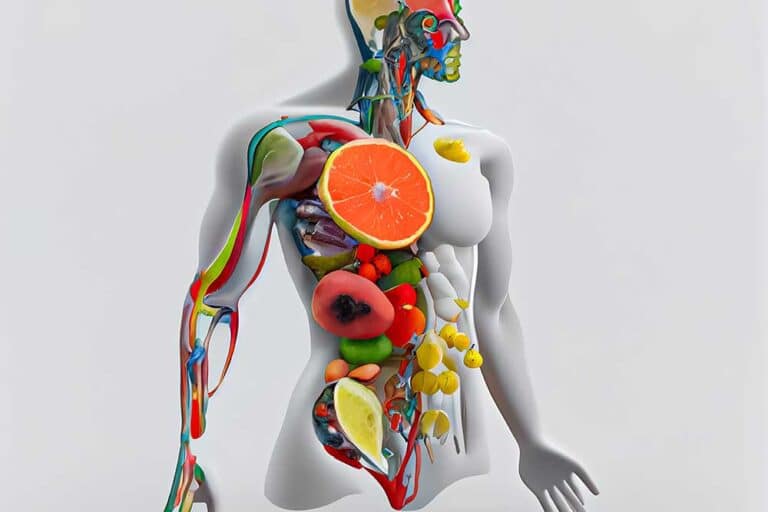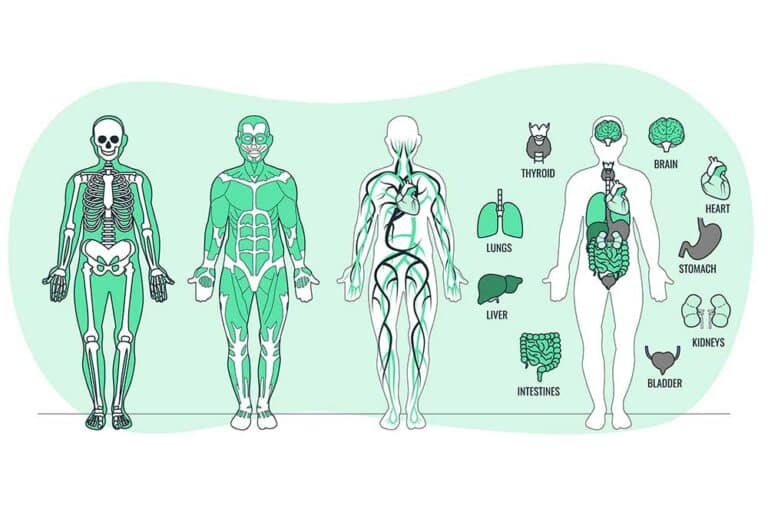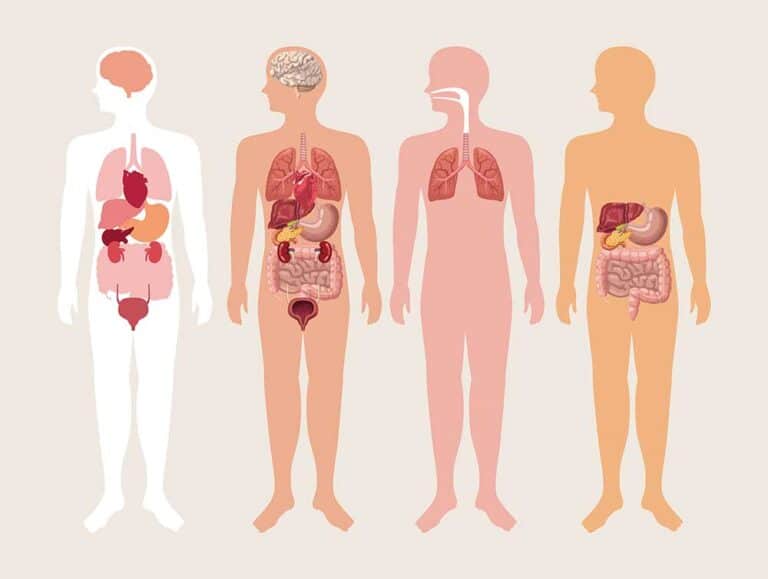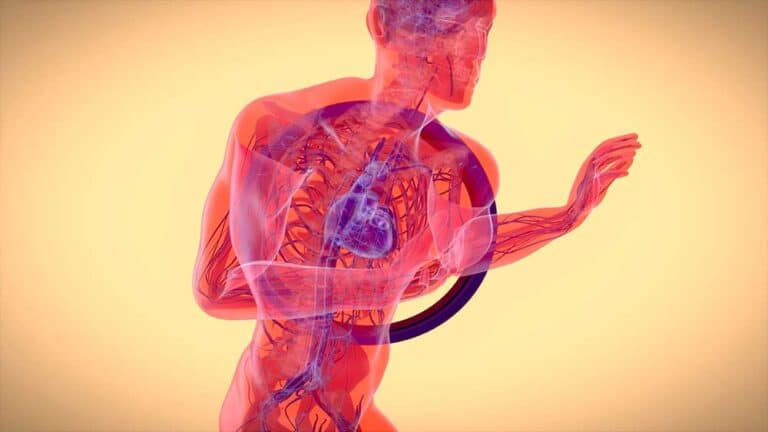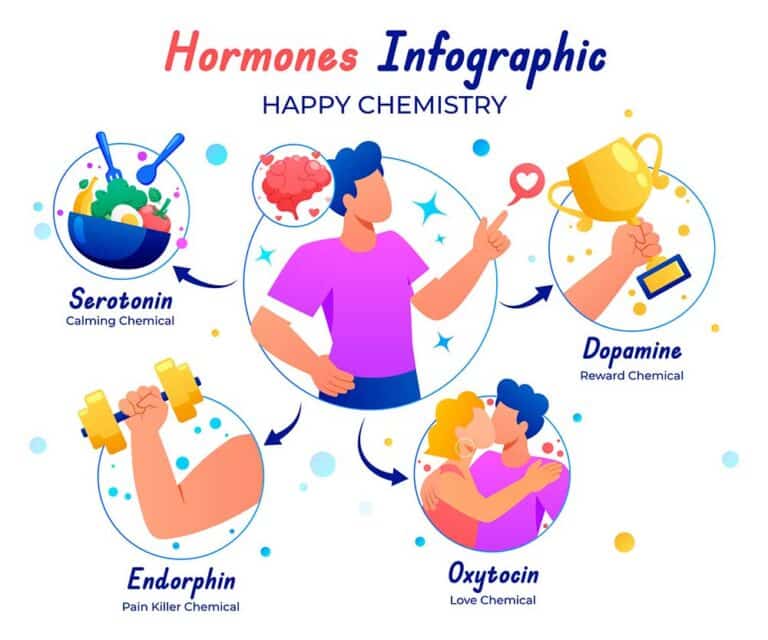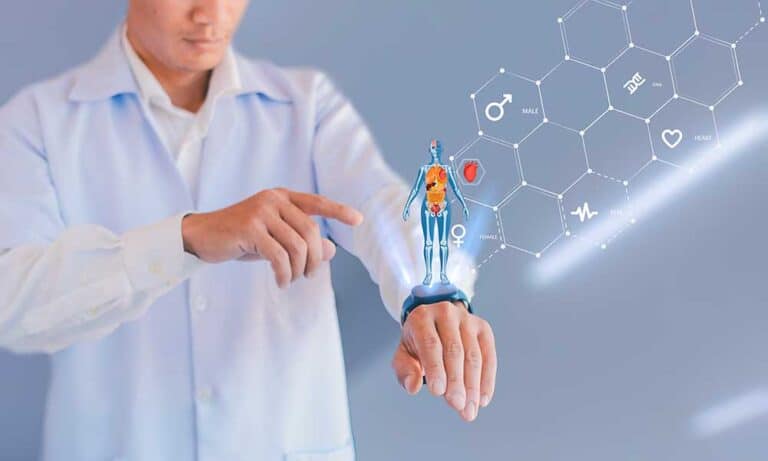Understanding Endocrinology
Endocrinology is the branch of medicine that focuses on the endocrine system, which controls the release of hormones—chemical messengers that affect almost every cell and function in the body. This section dives into the role of hormones and the imbalances that can occur.
Role of Hormones
Hormones are vital to maintaining homeostasis within the body. These chemical messengers travel through the bloodstream, carrying instructions from one set of cells to another. They influence numerous bodily processes, including growth, metabolism, and reproductive functions.
| Hormone | Function | Source |
|---|---|---|
| Insulin | Regulates blood sugar levels | Pancreas |
| Leptin | Controls appetite | Fat cells |
| Triiodothyronine (T3) | Regulates metabolism | Thyroid gland |
| Cortisol | Manages stress response | Adrenal glands |
| Ghrelin | Stimulates hunger | Stomach |
| Progesterone | Supports pregnancy | Ovaries |
| Testosterone | Regulates male reproductive functions | Testes |
| Estrogen | Controls female reproductive system | Ovaries |
Each hormone plays a specific role in the body, and any imbalance can severely affect one’s health. For more detailed information on the functions and anatomy of the endocrine system, visit our article on the human body endocrine system.
Hormonal Imbalances
Hormonal imbalances can be temporary or chronic, and they may require different levels of treatment depending on their severity (Cleveland Clinic). Some imbalances can disrupt physical health and significantly impact the quality of life.
Common symptoms of hormonal imbalances include:
- Unexplained weight gain or loss
- Fatigue
- Mood swings
- Irregular menstrual cycles
- Skin problems like acne or dryness
- Hair loss or thinning
- Excessive thirst or frequent urination
Addressing hormonal imbalances often involves diagnosing the underlying cause and may require medication, lifestyle changes, or other treatments. For insights into various hormonal disorders and their treatments, visit our page on endocrine disorders and treatments.
Understanding the role and impact of hormones is crucial for maintaining health and recognizing when something is amiss. Learn about the key endocrine glands and how they function by visiting our dedicated page on endocrine glands and their functions.
The Endocrine System
The endocrine system, also known as the hormonal system, plays a vital role in regulating various functions within the body. It comprises different glands that release hormones, which act as messengers to coordinate multiple bodily functions.
Function of Endocrine Glands
Endocrine glands are specialized tissues that create and release hormones directly into the bloodstream. These hormones then travel to specific organs and tissues to perform their functions. The primary role of these glands is to maintain homeostasis, regulate metabolism, growth, development, and reproductive processes (healthdirect).
Some of the essential functions of endocrine glands include:
- Regulating metabolic processes
- Controlling blood glucose levels
- Managing stress responses
- Influencing growth and development
- Governing reproductive functions
| Endocrine Gland | Primary Functions |
|---|---|
| Pituitary | Regulates other endocrine glands, controls growth and development |
| Thyroid | Manages metabolism, energy production, and calcium balance |
| Pancreas | Regulates blood sugar levels, aids in digestion |
Key Glands and Hormones
The endocrine system consists of several key glands, each responsible for producing specific hormones that target various parts of the body.
Pituitary Gland
Known as the “master gland,” the pituitary gland produces hormones that regulate many other endocrine glands. It secretes hormones like growth hormone, prolactin, and thyroid-stimulating hormone (TSH). These hormones control growth, lactation, and stimulate the thyroid gland to release thyroid hormones.
Thyroid Gland
The thyroid gland produces hormones T3 (triiodothyronine) and T4 (thyroxine), which regulate basal metabolic rate, energy production, and glucose oxidation. These hormones impact nearly every cell in the body, except for specific tissues, increasing rates of metabolism and body heat production (LibreTexts).
Pancreas
The pancreas plays a crucial role in regulating blood sugar levels by secreting insulin and glucagon. Insulin helps lower blood glucose levels by facilitating the uptake of glucose into cells, while glucagon raises blood glucose levels by stimulating the release of glucose from stored glycogen in the liver.
For further information on the functions and anatomy of endocrine glands, visit our detailed guide on endocrine glands and their functions.
| Key Gland | Hormones Produced | Functions |
|---|---|---|
| Pituitary | Growth Hormone, Prolactin, TSH | Regulates growth, lactation, and thyroid function |
| Thyroid | T3, T4 | Controls metabolism, energy production, and heat generation |
| Pancreas | Insulin, Glucagon | Manages blood glucose levels |
Understanding the basics of endocrinology and metabolism, including the role and function of endocrine glands, is crucial for recognizing conditions associated with hormonal imbalances. To learn more about the endocrine system and its impact on homeostasis, explore our article on endocrine system and homeostasis.
Common Hormonal Disorders
Understanding hormonal imbalances is crucial for comprehending endocrinology and metabolism basics. Hormonal disorders can cause significant changes in the body and often require medical treatment.
Types of Hormonal Imbalances
Hormonal imbalances occur when there is too much or too little of a hormone in the bloodstream. These imbalances can be temporary or chronic and can impact physical health as well as the quality of life (Cleveland Clinic). Here are some common types:
- Hypothyroidism: Low levels of thyroid hormones.
- Hyperthyroidism: High levels of thyroid hormones.
- Diabetes Mellitus: Inadequate insulin production or insulin resistance.
- Polycystic Ovary Syndrome (PCOS): Elevated levels of male hormones in women.
- Adrenal Insufficiency: Insufficient production of hormones from the adrenal glands.
- Growth Hormone Deficiency: Low levels of growth hormone.
Symptoms and Effects
Hormonal imbalances can manifest through a variety of symptoms and can affect multiple bodily functions. The most common endocrine disorder in the U.S. is diabetes. Here’s a closer look at the symptoms and effects of different hormonal disorders:
| Disorder | Symptoms |
|---|---|
| Hypothyroidism | Fatigue, weight gain, depression, dry skin |
| Hyperthyroidism | Weight loss, anxiety, tremors, rapid heartbeat |
| Diabetes Mellitus | Increased thirst, frequent urination, unexplained weight loss |
| Polycystic Ovary Syndrome (PCOS) | Irregular periods, acne, hair growth, infertility |
| Adrenal Insufficiency | Fatigue, muscle weakness, weight loss, low blood pressure |
| Growth Hormone Deficiency | Short stature in children, decreased muscle mass in adults |
These symptoms can significantly impact a person’s well-being and daily life. Recognizing and understanding these effects is essential for seeking appropriate medical care.
For more information on endocrine system diseases and disorders, visit our article on endocrine system diseases and disorders and learn about the role of the endocrine system in maintaining homeostasis. Additionally, explore how hormones regulate metabolism in our article on the role of hormones in metabolism.
Hormones and Metabolism
Hormonal Regulation of Metabolism
The endocrine system plays an essential role in regulating metabolism through the release of various hormones. These hormones control metabolic processes by influencing how the body uses and stores energy.
Insulin, produced by the beta cells of the pancreas, is a key hormone that regulates glucose levels in the blood. When blood glucose levels rise after eating, insulin is released to enhance the uptake and utilization of glucose by target cells, effectively lowering blood glucose levels (LibreTexts).
On the other hand, glucagon is released from the pancreas when blood glucose levels fall. This hormone stimulates the breakdown of glycogen into glucose (glycogenolysis) and the production of glucose from non-carbohydrate sources (gluconeogenesis), thereby increasing blood glucose levels to maintain homeostasis (LibreTexts).
Thyroid hormones, such as T3 (triiodothyronine) and T4 (thyroxine), are released by the thyroid gland and are pivotal in regulating the body’s basal metabolic rate. These hormones increase energy production, glucose oxidation, and heat generation. They affect almost every cell in the body, except for specific tissues like the brain and spleen (LibreTexts).
Impact on Energy Levels
Hormones not only regulate metabolism but also have a profound impact on energy levels. For instance, insulin facilitates the conversion of carbohydrates into energy, ensuring that cells receive the glucose they require for optimal function (Everlywell).
Leptin, another hormone released by fat cells, signals to the brain that the body has enough energy stored, indicating fullness and regulating body weight. When leptin levels are low, it can lead to increased hunger and reduced energy expenditure.
Cortisol, often referred to as the “stress hormone,” also influences energy levels. It regulates the body’s response to stress and controls the use of fats, proteins, and carbohydrates, ensuring that energy is available when needed.
Key Hormones and Their Impact on Metabolism:
| Hormone | Function |
|---|---|
| Insulin | Lowers blood glucose by enhancing glucose uptake by cells |
| Glucagon | Raises blood glucose by glycogen breakdown and gluconeogenesis |
| T3 and T4 | Regulate basal metabolic rate and energy production |
| Leptin | Signals fullness, regulates body weight |
| Cortisol | Manages stress response, influences fat, protein, and carb use |
Understanding these hormones and their roles provides crucial insight into the endocrinology and metabolism functions, offering pathways for better health management. For further details, check out resources on the role of hormones in metabolism and the endocrine glands and their functions.
Endocrine Diseases
Endocrine disorders can have significant impacts on various bodily functions. Understanding how they are diagnosed and treated, and the crucial role of endocrinologists, helps demystify these conditions.
Diagnosis and Treatment
Diagnosing an endocrine disorder involves a complex process, given the endocrine system’s role in regulating various functions such as growth, metabolism, and reproduction.
To confirm a diagnosis, an individual suspected of having an endocrine disease is usually referred to an endocrinologist. The specialist may conduct blood tests, urine tests, and imaging studies to evaluate hormone levels and gland function (WebMD).
| Diagnostic Test | Purpose |
|---|---|
| Blood Tests | Measure hormone levels |
| Urine Tests | Evaluate hormone excretion |
| Imaging Studies | Visualize gland abnormalities |
Treatment approaches vary depending on the specific disorder. They may include medication to regulate hormone levels, surgical intervention to remove tumors, or lifestyle modifications to manage symptoms. For detailed insight into various treatments, visit our section on endocrine disorders and treatments.
Endocrinologist’s Role
Endocrinologists specialize in the endocrine system and hormone-related conditions. Their expertise involves diagnosis, treatment, and management of disorders involving the endocrine glands and hormones (Cleveland Clinic).
| Role | Function |
|---|---|
| Diagnosis | Conducts tests to identify hormone imbalances |
| Treatment | Prescribes medication, recommends lifestyle changes |
| Management | Monitors ongoing conditions, adjusts treatments |
Pediatric endocrinologists focus on conditions affecting children under 18. They play a crucial role in managing growth disorders, puberty issues, and diabetes in young patients.
An endocrinologist works closely with patients to develop personalized management plans and ensure effective long-term care. For a deeper understanding of endocrine system functions and the role of glands, explore our articles on endocrine system anatomy and physiology and endocrine glands functions.
Hormones and Healthy Living
Understanding the role hormones play in metabolism is crucial for maintaining a healthy lifestyle. In this section, we’ll explore the factors that affect metabolism and the benefits of metabolic testing.
Factors Affecting Metabolism
Several factors influence an individual’s metabolic rate, including hormones, age, physical activity, and diet. Hormones such as insulin, leptin, triiodothyronine (T3), cortisol, testosterone, and estrogen play significant roles in metabolic functions (Everlywell).
| Hormone | Function |
|---|---|
| Insulin | Regulates blood sugar levels by enhancing glucose uptake and utilization (LibreTexts) |
| Leptin | Signals fullness and regulates fat storage |
| Triiodothyronine (T3) | Increases metabolic rate and energy production |
| Cortisol | Manages stress and influences energy levels |
| Testosterone | Affects muscle mass and metabolic rate |
| Estrogen | Regulates fat distribution and metabolism dynamics |
In addition to hormones, other factors have a significant impact on metabolism:
- Age: Metabolic rate generally decreases with age.
- Physical Activity: Regular exercise can boost metabolism.
- Body Composition: Muscle mass increases metabolic rate compared to fat mass.
- Diet: Proper nutrition supports metabolic processes.
- Environment: Temperature and climate can affect metabolic efficiency.
These factors highlight the complexity of metabolism and the many influences that can affect it.
Metabolic Testing Benefits
Metabolic testing offers several advantages when it comes to understanding and optimizing one’s health. By analyzing how your body converts food into energy, metabolic tests can provide valuable insights into areas such as hormone levels, caloric needs, and metabolic efficiency.
| Benefit | Explanation |
|---|---|
| Personalized Diet Plans | Tailor food intake to match metabolic rate and caloric needs. |
| Hormonal Imbalance Detection | Identify issues with insulin, leptin, and thyroid hormones. |
| Weight Management | Understand how metabolism affects weight gain or loss. |
| Improved Energy Levels | Find ways to balance energy production and consumption. |
Metabolic testing can be particularly beneficial for individuals with symptoms of hormonal imbalances or metabolic disorders. By identifying specific issues, one can work with healthcare professionals, such as endocrinologists, to develop targeted interventions.
For those interested in learning more about metabolic regulation, see our guides on role of hormones in metabolism and endocrinology and metabolism functions. Addressing any discovered imbalances through proper diet, exercise, and medical guidance can contribute to a healthier and more balanced lifestyle.
- About the Author
- Latest Posts
Johnnie D. Jackow Sr., the founder and CEO of Total Body Fitness, Worldwide, has a long-standing career in the fitness industry. He began as a certified personal trainer in the mid-90s and soon after authored his first weight loss book in 1998. This led to the launch of Total Body Fitness, Nationwide in the USA at the same time. Johnnie gained recognition as the fitness guru of his time, running infomercials on local TV late at night in Houston, Texas. Over the years, he has helped more than 40,000 individuals from all over the world achieve their health and fitness goals. With over 60,000 hours of documented training in integrative functional medicine, he completed his PhD in human physiology in 2010. His primary objective is to assist people in reaching their health and fitness goals through alternative approaches rather than relying solely on conventional medicine and pharmaceutical drugs. Today, with almost three decades of experience under his belt, Johnnie continues to be a leader in health and fitness.



